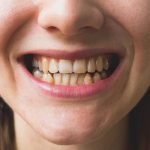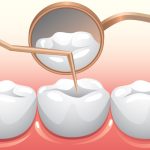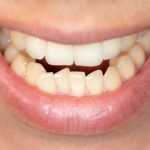Say Goodbye to Deep Stains on Teeth: Effective Tips for Removing Tough Discoloration
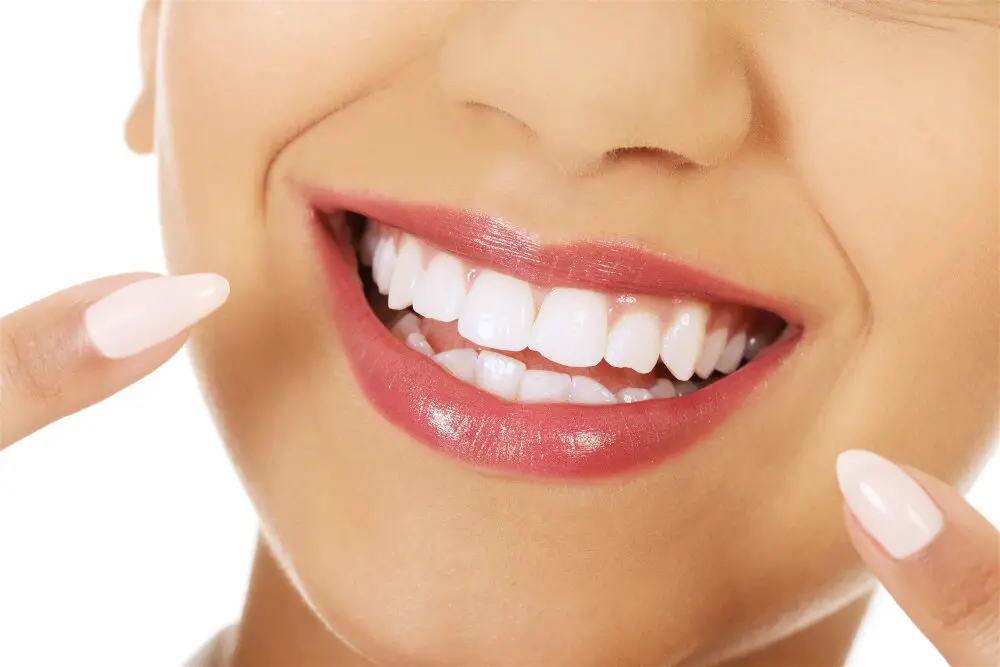
Having a bright, white smile can do wonders for your confidence. Unfortunately, maintaining clean and healthy teeth can be a challenge, especially when it comes to removing stubborn discoloration. Whether it’s caused by coffee, wine, or smoking, deep stains on teeth can be frustrating and difficult to eliminate. Fortunately, there are several effective tips and tricks that you can use to help get rid of those tough stains and restore your pearly whites. One of the most important things you can do to prevent deep stains on your teeth is to maintain good oral hygiene. Brushing twice a day, flossing regularly, and visiting your dentist for professional cleanings can go a long way in keeping your teeth healthy and free of discoloration. However, if you’re already dealing with deep stains, there are several other techniques that you can use to help remove them. From natural remedies to professional treatments, there are a variety of options available to help you achieve a brighter, whiter smile. In this article, we’ll explore some of the most effective tips for removing tough discoloration from your teeth, so you can say goodbye to those deep stains and hello to a brighter, more confident smile.
Deep stains on teeth are stubborn discolorations that do not easily go away. They are caused by a variety of factors such as genetics, age, poor oral hygiene, and lifestyle habits like smoking, drinking coffee, tea, or red wine. Some medications like antibiotics can also cause deep staining. These stains usually occur in the dentin, which is the inner layer of the tooth, making it harder to remove. Over time, the stains can become more noticeable, causing embarrassment and a lack of confidence. However, there are effective tips for removing tough discoloration, such as professional teeth whitening, using whitening toothpaste or strips, and making dietary changes.
The importance of removing deep stains goes beyond just improving the appearance of teeth. Deep stains can be a sign of underlying oral health issues such as tooth decay or gum disease. If left untreated, these conditions can lead to more serious problems such as tooth loss and even heart disease. Additionally, deep stains can cause embarrassment and self-consciousness, affecting a person’s confidence and social interactions. By effectively removing tough discoloration, individuals can not only improve their oral health but also enhance their overall appearance and boost their self-esteem.
Professional Teeth Whitening
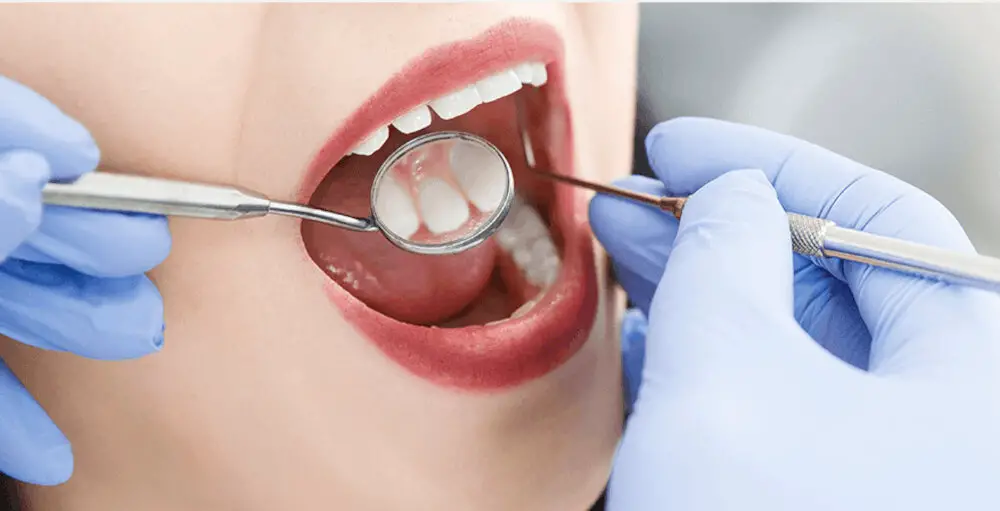
Professional teeth whitening is a cosmetic dental procedure that is becoming increasingly popular among people who want to achieve a brighter, more confident smile. This treatment is typically performed by a dentist or dental hygienist using advanced technology, such as laser or UV light, to remove deep stains and discoloration from the teeth. Unlike over-the-counter teeth whitening products, professional teeth whitening can provide dramatic results in just one treatment session. One of the main advantages of professional teeth whitening is that it is a safe and effective way to remove tough stains that cannot be eliminated by regular brushing and flossing. This includes stains caused by smoking, drinking coffee or red wine, and aging. Moreover, professional teeth whitening can be customized to suit the individual needs and preferences of each patient. For example, patients can choose the level of whitening they want to achieve, as well as the duration and intensity of the treatment. With professional teeth whitening, patients can enjoy a brighter, more youthful-looking smile that can boost their self-esteem and overall confidence.
Professional teeth whitening is a cosmetic dental procedure that involves the use of strong bleaching agents to remove deep stains and discoloration from the teeth. This technique is carried out in the dental office by a licensed dentist or dental hygienist, and it can significantly brighten the teeth in just one session. Professional teeth whitening is a safe and effective way to improve the appearance of teeth that have been discolored due to aging, genetics, or lifestyle factors such as smoking or consuming staining beverages like coffee and red wine. Unlike over-the-counter whitening products, professional teeth whitening treatments are customized to meet the unique needs of each patient and produce longer-lasting results.
Professional teeth whitening is an effective way to remove tough discoloration and achieve a bright, white smile. One of the main benefits of professional teeth whitening is that it can produce faster and more noticeable results than over-the-counter whitening products. Additionally, professional teeth whitening is performed under the supervision of a dental professional, which can help reduce the risk of sensitivity or damage to the teeth and gums. However, there are also drawbacks to professional teeth whitening, including the cost and the need for multiple treatments to maintain results. Additionally, some people may experience sensitivity or discomfort during or after the treatment. It is important to weigh the pros and cons before deciding if professional teeth whitening is right for you.
When it comes to removing tough discoloration from teeth, cost and time considerations play an important role. Professional teeth whitening treatments can be expensive and may require multiple sessions to achieve desired results. However, they can provide fast and dramatic improvements. On the other hand, at-home remedies are generally more affordable but may take longer to see noticeable changes. It’s important to weigh the benefits and drawbacks of each option and choose the one that fits your budget and timeline. Ultimately, investing in your dental health and appearance can have long-term benefits, so it’s worth considering all options before making a decision.
AtHome Whitening Kits
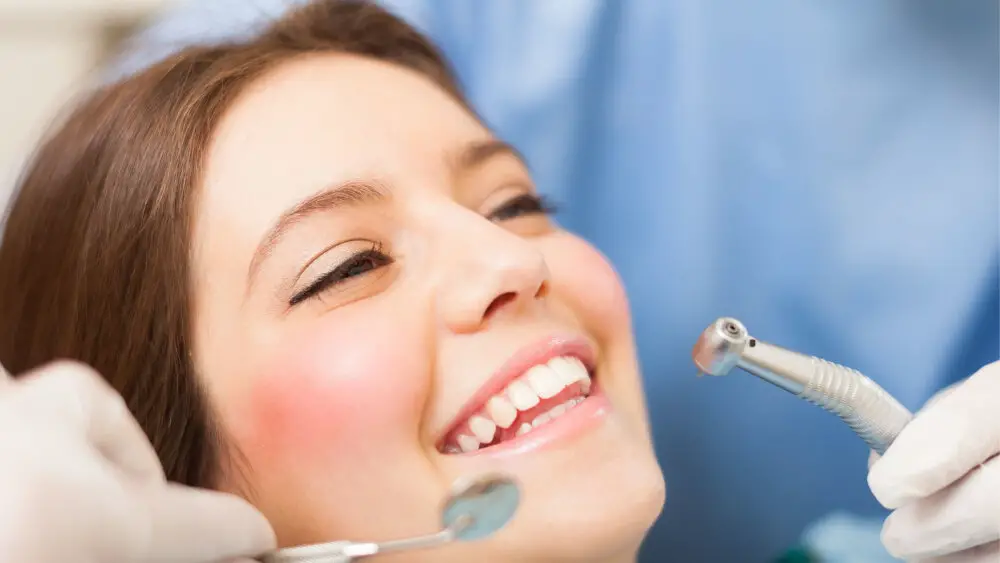
AtHome Whitening Kits are a popular solution for those looking to remove deep stains and discoloration on their teeth effectively. These kits are designed to offer a convenient and affordable way to brighten up your smile from the comfort of your own home. They typically include a whitening gel, trays, and an LED light that helps activate the gel and enhance the whitening process. One of the biggest advantages of AtHome Whitening Kits is their convenience. They can be used at any time, and you don’t have to worry about scheduling an appointment at the dentist’s office. Moreover, they are also much more affordable compared to professional teeth whitening treatments. However, it’s essential to note that while these kits are effective, they may not be suitable for everyone. Individuals with sensitive teeth or gum disease may want to consult with their dentist before using an AtHome Whitening Kit. Additionally, it’s crucial to follow the instructions carefully to avoid any potential damage to your teeth or gums. Overall, AtHome Whitening Kits are an excellent option for those looking to achieve a brighter and more confident smile without breaking the bank.
At-home whitening kits are a convenient and cost-effective option for removing tough discoloration on teeth. These kits typically come with a whitening gel and trays that are customized to fit your teeth. The gel contains hydrogen peroxide or carbamide peroxide, which breaks down the stains on your teeth and lightens their color. The trays are worn for a certain amount of time each day, depending on the strength of the gel and the severity of the stains. While at-home whitening kits can be effective, it’s important to follow the instructions carefully and not overuse the gel, as this can lead to tooth sensitivity and damage to the enamel. It’s also important to note that at-home whitening kits may not be as effective as professional teeth whitening treatments, but can still provide noticeable results.
At-home whitening kits are a convenient and affordable way to get a brighter smile without visiting a dentist’s office. These kits can produce visible results in just a few uses, making them a popular option for those looking for a quick fix. However, there are some drawbacks to consider. At-home kits may not be as effective as professional treatments, especially for deep stains. Additionally, overuse of these kits can cause sensitivity, irritation, and damage to the enamel. It’s also important to note that not all kits are created equal, and some may contain harmful ingredients. As with any dental treatment, it’s important to consult with a dentist before using an at-home whitening kit to ensure it’s safe and effective for your individual needs.
When it comes to removing tough discoloration from teeth, cost and time considerations are important factors to keep in mind. Professional teeth whitening treatments can be costly, and may not be covered by insurance. However, the results are typically more effective and longer-lasting than at-home remedies. On the other hand, at-home whitening kits can be more affordable, but may take longer to see results and require consistent use over several weeks. It’s important to weigh the pros and cons of each option and choose the one that best fits your budget and timeline. Ultimately, investing in a quality teeth whitening treatment can boost your confidence and leave you with a brighter, healthier smile.
Natural Remedies
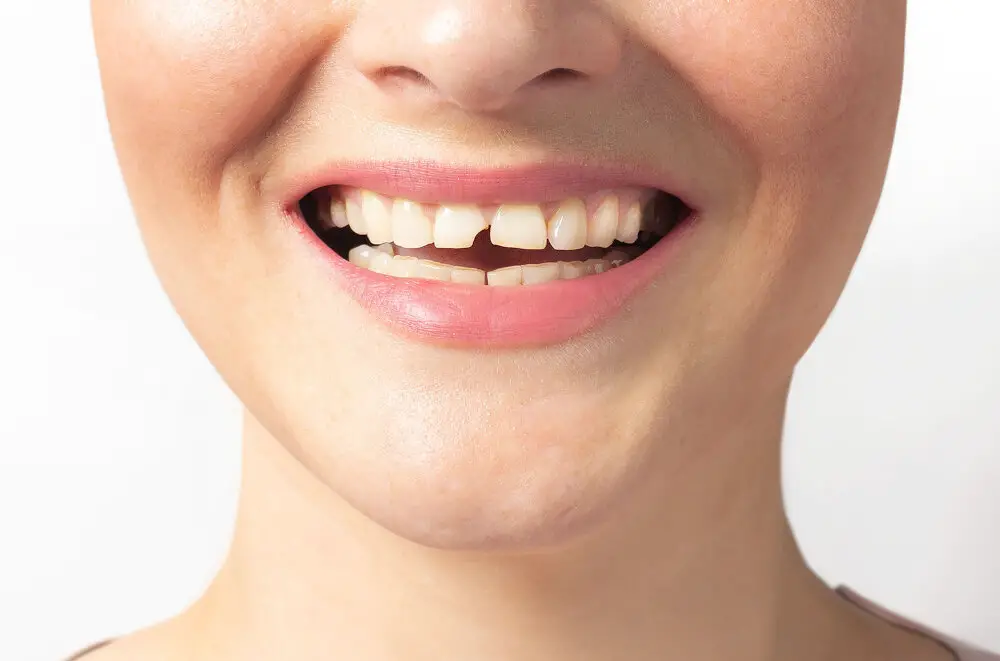
Natural remedies can be an effective way to remove tough discoloration and deep stains on teeth. One popular natural remedy is oil pulling, which involves swishing a tablespoon of oil (such as coconut or sesame oil) in your mouth for 15-20 minutes before spitting it out. This method is believed to remove bacteria and toxins that can cause staining. Another natural remedy is baking soda, which can be mixed with water to create a paste and used as a gentle abrasive to remove surface stains. However, it is important to use these remedies with caution and not rely on them as a substitute for professional dental care. Other natural remedies for removing deep stains on teeth include the use of activated charcoal, which can be applied to teeth in paste form or used in toothpaste. Additionally, fruits such as strawberries and pineapples contain enzymes that can help break down stains on teeth. However, it is important to remember that while natural remedies can be effective, they should be used in moderation and not relied upon as the sole method of dental care. Regular brushing and flossing, as well as routine dental cleanings, are still the best ways to maintain healthy teeth and remove deep stains.
Natural remedies for teeth whitening are a great alternative to chemical treatments. Baking soda, for example, is a popular choice due to its mild abrasive properties that can scrub away surface stains. Another option is oil pulling, which involves swishing coconut oil or other oils in the mouth for up to 20 minutes each day. This can help remove bacteria and other debris that cause discoloration. Additionally, strawberries contain malic acid which can help break down stains and brighten teeth. Other natural remedies include apple cider vinegar, hydrogen peroxide, and activated charcoal. However, it’s important to note that while natural remedies can help whiten teeth, they may not be as effective as professional treatments and can even cause damage if used incorrectly.
When it comes to deep stains on teeth, natural remedies can be a great option for those looking for an alternative to harsh chemicals or expensive treatments. One example is using baking soda and hydrogen peroxide to create a homemade toothpaste that can help whiten teeth over time. Another natural remedy is oil pulling, which involves swishing coconut or sesame oil in your mouth for several minutes to remove bacteria and stains. Additionally, incorporating crunchy fruits and vegetables like apples and carrots into your diet can help scrub away surface stains on teeth. While natural remedies may not provide immediate results, they can be a gentle and effective way to improve the appearance of deep stains on teeth.
Natural remedies can be a great option to remove deep stains on teeth. The benefits of using natural remedies include being cost-effective, easily accessible, and often gentler on teeth compared to harsh chemical treatments. Natural remedies can also provide additional health benefits, such as reducing inflammation and promoting healthier gums. However, it is important to note that natural remedies may not be as effective as professional treatments, and results may vary depending on the severity of the stain. Additionally, some natural remedies may have abrasive properties that can damage the enamel of the teeth if used too frequently or aggressively. Therefore, it is essential to use natural remedies with caution and under the guidance of a dental professional.
When it comes to removing tough discoloration on teeth, cost and time considerations are important factors to keep in mind. Professional teeth whitening treatments can be expensive, especially if multiple sessions are required to achieve the desired results. On the other hand, at-home whitening kits may be more affordable, but they often take longer to show results and may not be as effective as professional treatments. It’s also important to consider the time it takes to maintain the results, as certain lifestyle habits such as smoking or drinking coffee can quickly undo the effects of teeth whitening. Ultimately, it’s important to weigh the cost and time involved in any teeth whitening treatment before making a decision, and to discuss options with a dental professional to determine the best course of action for your individual needs.
Lifestyle Changes

Lifestyle changes are an essential part of maintaining healthy teeth and preventing deep stains. One of the most important lifestyle changes you can make is to quit smoking. Smoking not only stains your teeth, but it also increases your risk of gum disease, tooth decay, and even oral cancer. Cutting back on coffee, tea, and other dark-colored beverages can also help prevent deep stains on teeth. If you can’t give up your morning cup of coffee, try drinking it through a straw to minimize contact with your teeth. Drinking plenty of water throughout the day can also help rinse away food particles and prevent stains from settling on your teeth. Another lifestyle change that can help prevent deep stains on teeth is maintaining good oral hygiene practices. Brushing your teeth twice a day with fluoride toothpaste and flossing daily can help remove surface stains and prevent plaque buildup. You should also visit your dentist regularly for professional cleanings and checkups. Your dentist can identify early signs of tooth decay and gum disease and recommend treatment to prevent stains from becoming deeper and more difficult to remove. By making these simple lifestyle changes, you can keep your teeth healthy and bright for years to come.
Preventing deep stains on teeth requires making some lifestyle changes. Firstly, it is important to avoid or limit the intake of foods and drinks that are known to cause stains, such as coffee, tea, red wine, and dark-colored berries. If you do consume these, it is recommended to rinse your mouth with water afterwards. Quitting smoking or using tobacco products can also help prevent deep stains, as tobacco is notorious for causing yellowing and discoloration of teeth. Maintaining good oral hygiene by brushing twice a day and flossing daily is crucial, as it will remove surface stains before they can penetrate deeper into the teeth. Finally, consider using a whitening toothpaste or seeking professional teeth whitening treatments to help brighten your smile and remove any stubborn discoloration. By making these lifestyle changes, you can prevent deep stains on your teeth and maintain a healthy, bright smile.
There are various lifestyle changes that can help prevent and remove deep stains on teeth. For instance, practicing good oral hygiene by brushing and flossing daily can help remove surface stains caused by food and drink. Additionally, reducing the consumption of foods and drinks that are known to cause staining, such as coffee, tea, and red wine, can also be effective. Quitting smoking or using tobacco products is another significant lifestyle change that can help prevent deep stains on teeth. Moreover, regular dental check-ups and cleanings can help identify and treat dental issues before they become more severe and cause deep discoloration. By incorporating these lifestyle changes, individuals can maintain a bright and healthy smile.
Making lifestyle changes can have significant benefits when it comes to removing tough discoloration on teeth. For instance, avoiding acidic and sugary foods and drinks can prevent further staining and promote overall oral health. Additionally, regularly brushing and flossing can help to maintain a healthy and bright smile. However, lifestyle changes can also have drawbacks. For example, quitting smoking can be difficult and may lead to withdrawal symptoms. Similarly, cutting back on coffee or wine may be challenging for some individuals. It is important to weigh the potential benefits and drawbacks of making lifestyle changes and to consult with a dental professional for additional guidance.
When it comes to deep stains on teeth, there are a few options available for effective removal. One option is professional teeth whitening, which can be done by a dentist using powerful bleaching agents. Another option is at-home bleaching kits that can be purchased over-the-counter or through a dentist. For more natural remedies, charcoal toothpaste or oil pulling can also help remove deep stains. Additionally, avoiding foods and drinks that cause staining, such as coffee and red wine, can prevent further discoloration. It’s essential to consult with a dentist to determine the best course of action for your specific needs and to ensure safe and effective treatment.
Teeth whitening has become a popular cosmetic treatment for those looking to brighten their smiles. However, it’s important to consult with a dentist before attempting any teeth whitening methods. A dentist will be able to assess the condition of your teeth and determine if you’re a good candidate for teeth whitening. They can also recommend the best whitening method for you, whether it’s an in-office treatment or an at-home kit. Consulting with a dentist can prevent potential damage to your teeth and ensure that you achieve the desired results safely and effectively. So before you begin any teeth whitening treatment, make sure to schedule a consultation with your dentist.
Maintaining oral health and a bright smile should be a top priority for everyone. Regular brushing and flossing are essential to prevent plaque buildup and cavities. However, sometimes tough discoloration may occur, and it can be frustrating to deal with. That’s why it’s important to incorporate effective tips such as avoiding foods and drinks that stain teeth, using natural whitening remedies like baking soda, and visiting a dentist for professional teeth cleaning and whitening treatments. Remember that having a healthy and bright smile not only boosts your confidence but also indicates good overall health. So, make sure to take care of your teeth and gums for a radiant and sparkling smile.
Conclusion
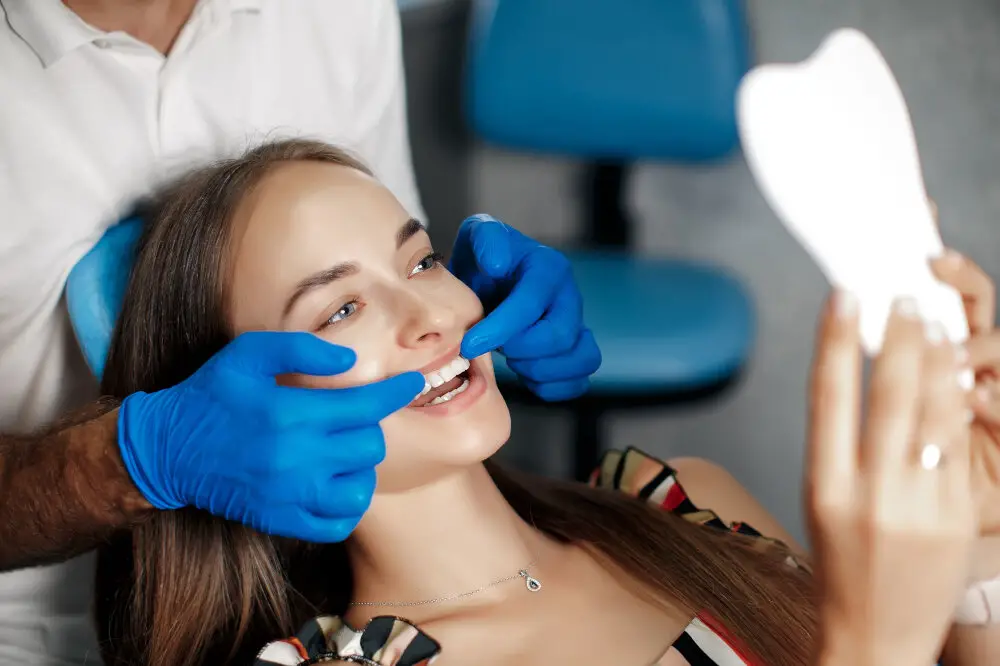
In conclusion, removing deep stains on teeth can be a daunting task, but with the right knowledge and techniques, it is possible to achieve a brighter, more confident smile. From simple daily habits such as brushing and flossing to more advanced treatments like professional whitening and veneers, there are a variety of options available to combat tough discoloration. It is important to consult with a dental professional to determine the best course of action for your individual needs. With dedication and patience, anyone can say goodbye to deep stains on their teeth and welcome a fresh, vibrant smile.

